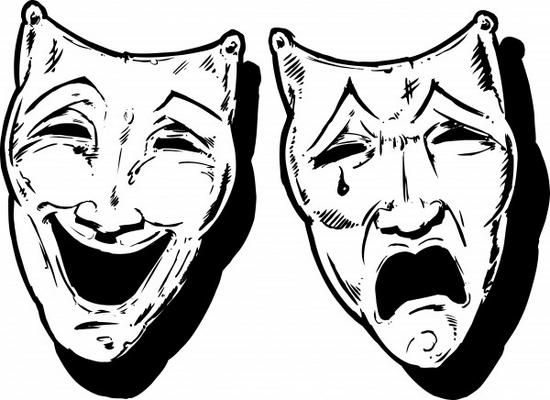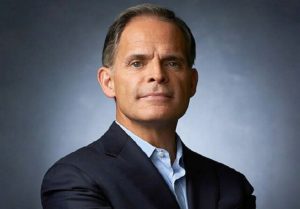Is It Ok For Brands To Be Funny Again?

Even if we have only met once, you will know one indisputable truth about me: I don’t take many things seriously. I always, cue Mr. Idle — look on the bright side of life. At least I try to anyway. Even in the darkest of times, I think it’s vitally important to find humor.
Whenever I visit anyone in a hospital, for example, my goal is to make that person smile and laugh, even at my own expense. I don’t know why or how I got this way, but humor has become very much a response mechanism for me.
Permitted Chuckling
I recently read a piece from TIME entitled Laughter Helps the Brain Relax.’ How Humor Can Combat Coronavirus Anxiety. It is a fantastic piece which I highly recommend you read. Here’s just one of many excerpts that is completely on par with my own way of thinking:
“Are we allowed to chuckle yet? We’d better, psychologists and humorists say. Laughter can be the best medicine, they argue, so long as it’s within the bounds of good taste. And in a crisis, it can be a powerful coping mechanism.”
Notice the use of the word “coping” vs my use of the word “response” re: the word mechanism. Different words. Same result. Same benefit.
Then there’s How Humor Can Be A Leader’s Friend In A Crisis, a recent piece in Forbes. One of the most insightful and spot on lines from this brilliant piece may very well be the last words of it:
“A leader who tells jokes on himself is one who demonstrates a kind of vulnerability that encourages followers to see the real person behind the title. It positions the leader if not exactly one of us, then one close to us. And now that so many employees are working from home, a leader who can apply humor is insightful and resourceful.”
To Humor Or Not To Humor, That Is the Question
Now rest assured we’re talking about two different things here. On one hand we’re talking about leaders and their use of humor during a crisis or at any time, quite frankly. And on the other hand we’re talking about brands and if it’s ok for them to use humor right now, during this particular moment in time.
I have my own thoughts, but before I get to mine, I want to share thoughts from business leaders from a variety of backgrounds and experiences.
I posed two very simple questions to them:
- Do you think it’s ok for brands to use humor in marketing and advertising while we’re in the middle of this crisis? Why or why not?
- Moreover, do you think it will depend on how the brand operated/it’s tone/etc BEFORE the crisis? In other words, if a brand did not use humor before, it’s probably not a good idea to start now, yes?
Here’s my esteemed panel I assembled followed by their responses to the above queries.
NOTE: A few responded “generically” meaning they did not answer the questions per se, but rather shared overall commentary. This can be found following the Q&A.
- Patrick Adams, Forbes Top 50 CMOs | Chief Marketing Officer | Former Head of Consumer Marketing at PayPal and Victoria’s Secret
- Peter Armaly |Senior Director | NAA Customer Success | Enablement and Thought Leadership | Oracle
- David Brier | Google’s #1 Rebranding Expert | Author of Amazon’s Branding Bestseller “BRAND INTERVENTION” responsible for $1B in sales
- Terry Kawaja | Founder & CEO | LUMA Partners
- Julie Lyle | CEO | Zytara Inc. | Former CMO of Walmart
- Denny Post | Former CEO | Red Robin
- Jennifer Renaud | SVP & CMO | Masonite International
- Bob Weinhold | President | Leadership Pacing
Do you think it’s ok for brands to use humor in marketing and advertising while we’re in the middle of this crisis? Why or why not?
Armaly: Yes, I do but ONLY if the brand has 100% confidence that it has the ability to deploy enough of a sophisticated and sublime touch that it strikes the perfect balance between humor and compassion.  That razor-thin balance, if achieved, can go a long way towards making communities feel better but it is also an extremely high bar to reach. If it is reached, it can make the brand seem strong, compassionate, human, a leader, and that it thinks beyond itself to a greater good (because societies need touches of humor too, even during a crisis). So my advice is this… if you can’t be sure you can hit that bar, don’t do it.
That razor-thin balance, if achieved, can go a long way towards making communities feel better but it is also an extremely high bar to reach. If it is reached, it can make the brand seem strong, compassionate, human, a leader, and that it thinks beyond itself to a greater good (because societies need touches of humor too, even during a crisis). So my advice is this… if you can’t be sure you can hit that bar, don’t do it.
This example is not of a big brand (he’s a freelance photographer, I believe) but I think it demonstrates light humor during a crisis.
Kawaja: I think it is OK for brands (or anyone for that matter) to use humor in their creatives. I am a big believer that humor taps a fundamental human emotion that we can’t lose sight of  ESPECIALLY in dark times like this. I recall that in the eerie post 9-11 period, the first time I felt a sense of normalcy was when the late night comics started telling jokes again. Likewise I think we need comedy now. If we lose our ability to laugh, we will lose hope.
ESPECIALLY in dark times like this. I recall that in the eerie post 9-11 period, the first time I felt a sense of normalcy was when the late night comics started telling jokes again. Likewise I think we need comedy now. If we lose our ability to laugh, we will lose hope.
Lyle: At this point in the crisis, many consumers are experiencing fear and uncertainty about their own safety, and their financial security. While the media blare headlines of increasing COVID-19 cases, and show morbid photos of refrigerated mobile morgues, this is not the time for humor in advertising. People are losing loved ones, jobs, freedom and more. Now is the time for compassion, compliance and generosity.
An exceptional example of brand leadership in advertising is VISA’s recent campaign with Olympic athletes explaining how to safely wash your hands in the midst of this pandemic. They didn’t shy away from the disappointing news of the Olympic games postponement, but instead confirmed their commitment to TEAM VISA athletes through 2021 and brought them into fans’ homes in relatable ads that were timely and educational as well.
Post: Yes, in fact I think it would be a relief. It cannot be about the fear or the reality of this horrible virus. It can be about the circumstances of our sheltered reality. There are smiles to be  had and even the occasional outright laughter in the foibles of families living together in close proximity. Smiles of familiar recognition. Laughter at what we are all doing to cope. We can have fun with the circumstances, not the critical nature of the crisis.
had and even the occasional outright laughter in the foibles of families living together in close proximity. Smiles of familiar recognition. Laughter at what we are all doing to cope. We can have fun with the circumstances, not the critical nature of the crisis.
Moreover, do you think it will depend on how the brand operated/it’s tone/etc BEFORE the crisis? In other words, if a brand did not use humor before, it’s probably not a good idea to start now, yes?
Armaly: Yes, I do think it depends on how a brand behaved before the crisis. If it helps, I would recommend a brand ask itself two simple questions…
- If we’ve not used humor before, why would we think a crisis is a good time to try that?
- Why do we think our hard-earned audience would welcome a new look and tone at this particular moment in time?
Kawaja: It’s probably more natural if the brand has a reputation for being funny and I would not recommend a new humous campaign if that wasn’t previously part of the brand’s image. That said, I believe there are constraints on the application of humor: brands ought to be sensitive to the crisis.
Lyle: I believe consumers will emerge from this crisis with a heightened expectation – if not demand – for transparency and authenticity from brands. For a brand that has been quite serious or institutional previously to introduce humor during/post COVID-19 will seem jarring to most consumers. It may even come across as tone-deaf, especially if humor was not part of the established brand essence prior to the pandemic.
Post: There are brands whose personality is more suited than others, no doubt but I do not think it should be solely limited. We are all changing through this. Brands can too, cautiously and thoughtfully.
Overall Commentary
Adams: I can think of very few situations whereby something cheeky from a well-established brand will feel like anything but minimizing what the world is going through. Humor might need to wait a bit. Regardless of prior brand positioning – every brand needs to be in the service of  others mode (customers, employees, the world). A strong brand should be clearly articulating what they are doing to make this situation better. If you are not thinking in those terms or behaving as such (initially) your brand credibility will suffer for it.
others mode (customers, employees, the world). A strong brand should be clearly articulating what they are doing to make this situation better. If you are not thinking in those terms or behaving as such (initially) your brand credibility will suffer for it.
The other note I would make is that the world is watching and very willing to call out winning and losing behavior. So, it’s not good enough that your brand does what it can to become part of the solution, but you must be seen as having high level of compassion for your employees as well.
Brier: Brands have to be REAL. If they were spunky before, it might work to be “tastefully spunky” now. It really coms down to “Does this make sense?” and “Are we being true and genuine or simply being opportunistic because ‘it’s the hip thing to do?’ “
being opportunistic because ‘it’s the hip thing to do?’ “
The WORST thing a brand can do is be “that best man who toasts the groom while discussing porno, infidelities, and having sex with the mother-in-law” like Rick Gervais would do at the Golden Globes.
Renaud: I have really been grappling with the use of humor during this or any crisis. My natural tendency is to use humor – or at least be clever and pithy. I would like to  think that smart humor in social media would be OK, but I’m just not sure. In reality, anything you do as a brand should be consistent with your brand tone and voice – if you used humor before, don’t stop. Be smart, but don’t stop. If you didn’t, then don’t start.
think that smart humor in social media would be OK, but I’m just not sure. In reality, anything you do as a brand should be consistent with your brand tone and voice – if you used humor before, don’t stop. Be smart, but don’t stop. If you didn’t, then don’t start.
Weinhold: As a former Hospital CEO and understanding the gravity of life and death, your question certainly has piqued my interest. Now as a Strategy/Leadership Coach to C-Suite Executives, I look for growth and how to limit exposure.
Humor and Marketing have always been an extraordinary tool to quickly gain connection/buy-in with a customer. When used in the right way, a brand can create a community with humor, “Dilly, Dilly.” When done in the wrong way, humor casts doubt about the integrity of the brand/leadership. The way I think humor can work is to make light, draw awareness to the irony of the consumers quirky responses.
Never would we ever have thought that COVID 19 as a pandemic has been the biggest impact on climate change in the last decade. So the humor has to be critically placed on the responses of the healthy and remain very far away from any of the patients/victims. WHY critical for big brands to empathize and be seen as contributing to the solution. WHY NOT> cannot do anything that can be perceived as insensitive or not patient with the recovery process.
No Humor Before. Beginning humor now if done well, could be quite powerful to signal that the Brand is taking the pandemic seriously enough to change behavior; however, it may need explaining, which could undermine the impact of humor used.
Humor Before. If the brand is known for humor, go forward and claim the importance of how the Brand provides humor to others at this very tough time.
My Turn
You already know I have a tendency to find humor in pretty much anything at any time. However, that’s me as an individual. Yes, I know I am my own brand just as all of you are as well. But my brand is one already “out there” and documented as one that incorporates humor into its messaging.
And therein lies the rub. Just as many have already said in so many words, if a brand was not known to be funny/inject humor into its messaging, now is surely not the time to start.
Conversely if a brand DID in fact use humor prior, I think it’s perfectly fine and acceptable to use it again — within reason. You have to be, as Jennifer Renaud put it, smart about it. If you have ANY doubt that what you’re going to release to the world could in any way be misconstrued as being tasteless, heartless, etc. — don’t do it.
Otherwise, have as much as you want. After all just because we’re all sequestered doesn’t mean we can’t laugh. Laughter is after all, the best medicine.
I welcome your thoughts and opinions.